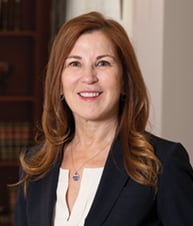As often happens during natural disasters, the outbreak of COVID-19 in the U.S. has triggered alleged incidents of price gouging for essential goods. A recent survey by the Associated Press has revealed over 5,000 potential examples to date, involving products such as N95-rated masks, hospital gowns, and hand sanitizer. Major e-commerce platforms have also been deluged with attempts by third-party sellers to offer coronavirus-related products at highly inflated prices. Although price gouging is theoretically illegal nationwide, these restrictions are imposed at the state level and vary widely among states.
Overview of Price Gouging Laws
“Price gouging” refers to unjustified and extreme price increases intended to profiteer from a natural disaster or emergency, typically for essential products or basic necessities. Federal law does not specifically target price gouging; however, the federal government has taken steps to respond to those attempting to profit illegally from the coronavirus pandemic. Most notably, on March 23, Present Trump announced an Executive Order aimed at preventing price gouging and hoarding of critical medical supplies amid the coronavirus pandemic. The Order gives the Secretary of Health and Human Services the authority to designate certain supplies as “critical,” and those found to be hoarding or price gouging such equipment could face criminal action. Designations are currently limited to specific medical equipment, protective items, and disinfectants. In addition, over this past weekend, the U.S. Department of Justice’s Civil Division brought its first coronavirus-related fraud case in the Western District of Texas, successfully obtaining a temporary restraining order against the operators of the website coronavirusmedicalkit.com. The site claimed to be distributing vaccines for a $4.95 shipping fee – though no known vaccine is effective against COVID-19. Finally, the U.S. Department of Justice’s National Center for Disaster Fraud is focused on finding and prosecuting those who take advantage of disasters through fraud, including price gouging. Historically, however, price-gouging claims have not been the center’s focus.
As a practical matter, price gouging is addressed at the state level. Thirty-one states plus the District of Columbia have laws specifically banning price gouging, although two of these (Indiana and Vermont) apply to fuel only. All other states except Arizona, Colorado, Delaware, Maryland, Washington, and Wyoming have statutes banning “unfair” or “unconscionable” trade practices that effectively prohibit price gouging without using the term; the governors of Delaware and Maryland recently enacted orders banning price gouging during the coronavirus pandemic even absent statutes. Typically, state price-gouging laws are triggered by the declaration of a public emergency by the governor (or for D.C., the mayor), which has occurred in all states except Wyoming. State attorneys general can also issue emergency regulations prohibiting price gouging in addition to existing statutes, as occurred recently in Massachusetts. When evaluating price-gouging claims, prices of covered products are usually measured against those charged either immediately (e.g., Alabama, California, Georgia), or within some prescribed timeframe such as 30 days (e.g., Florida, Rhode Island), before the emergency declaration and through the duration of the emergency period.
The level of price increase that constitutes potential “gouging” varies considerably among states. California, for example, prohibits price increases of more than 10% above those charged immediately before an emergency declaration, whereas the threshold is 15% in Maine and Oregon, and 20% in Michigan. Other states, such as New Jersey and Utah, broadly outlaw “excessive” price increases during a public emergency. The scope of products covered by price-gouging statutes varies among states as well. Some state laws encompass essentially all goods and services (e.g., Alabama, Florida, Mississippi). Others are limited to items that might naturally be in higher demand as a result of an emergency (e.g., Kansas) or those necessary for the “health, safety, and welfare” of consumers (e.g., New York). Safe harbors and exceptions also differ among states and mostly include allowances for “pass-on” price increases incurred by the seller or increased production or distribution costs caused by the emergency.
Most price-gouging statutes do not provide a private right of action but vest prosecutorial authority in the state attorney general’s office. Remedies typically include injunctive relief, restitution orders, and civil penalties calculated per violation. Some states – for example, Michigan, Mississippi, and Nevada – also specify criminal charges for willful acts of price gouging. Additional penalties and private rights of action may be available under a state’s unfair trade practice laws as well.
Guidance for Responding to Price Gouging
Businesses that believe they are subject to price gouging by their suppliers in the wake of the coronavirus pandemic have several potential avenues of relief. For example, they can file complaints with their state attorney general’s office – which can often be done by telephone – and with the National Center for Disaster Fraud. They can also send cease-and-desist letters to their suppliers that identify the products and prices in question, explain that price gouging is illegal, and demand that prices revert to reasonable or pre-emergency market levels. If a private right of action is available under the state’s unfair trade practices law, businesses can also file lawsuits for injunctive relief and damages, in addition to referring the price gouging to state authorities. For large companies in particular, it may be effective to submit complaints to their state legislators and even their Members of Congress, who are typically eager to publicize, pressure, shame, and investigate price gougers. In the case of foreign suppliers seeking to take advantage of the coronavirus pandemic, Members of Congress and Administration officials may be the only governmental actors in a position to provide any assistance to U.S. businesses, given the jurisdictional problems inherent in seeking to apply state price-gouging statutes to foreign entities.
Guidance for Avoiding Charges of Price Gouging
Businesses that consider raising prices for goods and services during the coronavirus pandemic, particularly while emergency declarations are still in effect, should bear in mind that they may be vulnerable to complaints of price gouging. Although state laws differ, it is advisable to raise prices – if at all – only to the extent necessary to offset increased costs of production, supplies, or distribution. Such increases often fall within “safe harbors” and exceptions in price-gouging regulations. However, these cost increases should be documented in detail. Further, to the extent that a price increase was planned before the emergency declaration – for example, if a temporary discount period was scheduled to end on a specified date – it is imperative to keep detailed records showing that the increase was expected (and, ideally, publicized) before an emergency declaration went into effect. If it is possible to delay the price increase, and thus extend a discount period, the long-term goodwill to be gained may outweigh the additional short-term revenue from a higher price. Finally, businesses should think twice about raising prices, particularly for essential goods, merely because it appears the market will bear temporary emergency-related increases. If such price increases exceed the threshold set by state law and are not due solely to cost increases, the business will be susceptible to charges of price gouging, with the attendant legal consequences and negative impact on goodwill.
Conclusion
Although common-sense principles generally apply, the specific laws governing price gouging vary widely from state to state, with important thresholds and potential defenses spelled out differently across jurisdictions. For this reason, businesses that believe they are victims of price gouging, or that seek to raise prices for goods or services during the coronavirus pandemic, would be wise to consult with counsel experienced in this area.
Alston & Bird has formed a multidisciplinary task force to advise clients on the business and legal implications of the coronavirus (COVID-19). You can view all our work on the coronavirus across industries and subscribe to our future webinars and advisories.

